Metal Fabrication with Industrial Robots
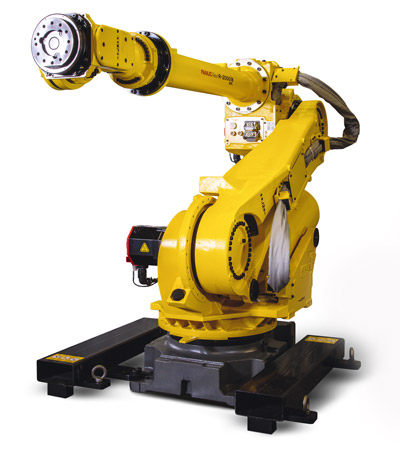
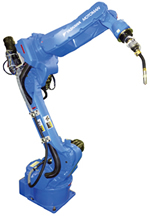
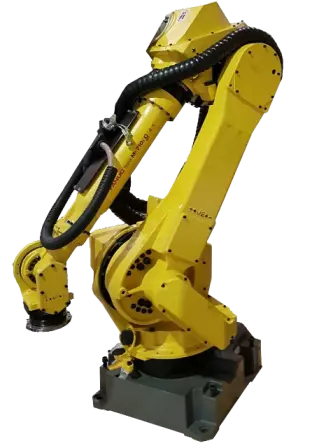
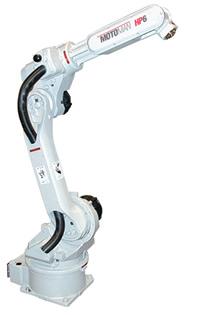
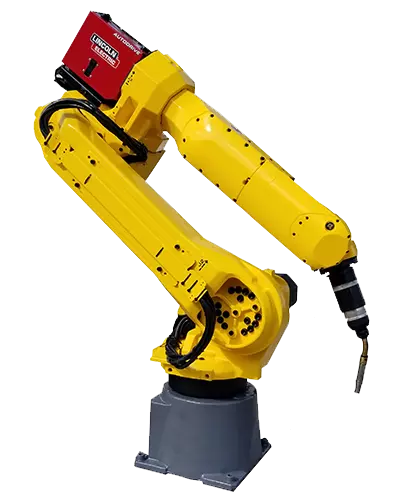
Metal fabrication is the process of using raw metal materials to produce machines or structures. There are several applications involved with metal fabrication in order to produce the finished product. The products created through metal fabrication vary from small metal goods such as hardware to architectural structures to heavy equipment.
Metal fabrication shops once solely consisted of manual labor. Fab shops employed several types of skilled positions including welders, blacksmiths, and ironworkers. The skillset needed combined with the cost of implementing industrial robots, discouraged metal fabricators from robotic automation. However, declining numbers of skilled workers has led to a labor shortage in the industry. In addition, industrial robots have become more advanced, enabling them to automate jobs once reserved for craftsmen and their cost has become much more affordable. These factors have led to the robotic automation of metal fabrication processes.
Articulated robots are optimizing metal fabrication. Their accuracy and precision prevent wasted materials and reduces production costs. The FANUC M10ia only uses the necessary amount of material for a part. Touchups and rework are prevented through robotic automation, helping to improve quality and speed up cycle times.
Automating with industrial robots is helping metal fabricators solve their labor shortage issues. Skilled trades are becoming rarer as older metal workers retire. Younger workers are not seeking manual labor jobs, leading to a shortage of workers in industries such as metal fabrication. Automating with the Motoman HP20 fills skilled positions, prevents worker turnover, and allows companies to save on expensive labor salaries. Six axis robots can operate for longer hours without delays or breaks increasing productivity.
It is not just traditional industrial robots that are automating metal fabrication shops, collaborative robots are also being implemented. While collaborative robots do not have the payload capacity or reach needed for heavy metal fabrication, they can automate or assist with smaller projects. For instance, the Universal UR10 can be deployed for unskilled tasks such as bending brackets. Other cobots may be able to perform simple welds or assist workers with automated material handling of lighter metals. Collaborative robots are ideal for smaller metal fabricators with their size and affordability. They can assist workers, increasing throughput and efficiency.
Robots can be implemented to automate most of the processes involved with metal fabrication. These include:
- • Cutting - Prior to welding, metal workpieces need to be cut. The FANUC Arcmate 120ic is ideal for automated metal cutting. All cuts will be accurate, ensuring pieces fit together for proper welding.
- • Welding - Welding is one of the main processes involved with metal fabrication. Both arc welding and spot welding methods are used. The Motoman MA1400 is a welding robot ideal for arc welding automation. For spot welding, the FANUC R-2000ib can be selected for industrial automation.
- • Machine Tending - Machines such as forges, presses, or injection molds may be used in metal fabrication. Robots are able to automatically load and unload parts from machines as well as service machines. Long reach robots like the FANUC R-2000ib/125L are a great fit for robotic press tending.
- • Material Handling - Robots have the payload capacity and reach to be able to easily move metal workpieces, regardless of their size or weight. Metal pieces are safely and efficiently transferred with robots.
- • Finishing - Buffing, grinding, and polishing are finishing processes used to finalize metal products. Automating finishing applications with robots ensures all finishes are smooth, high-quality, and consistent with each product.